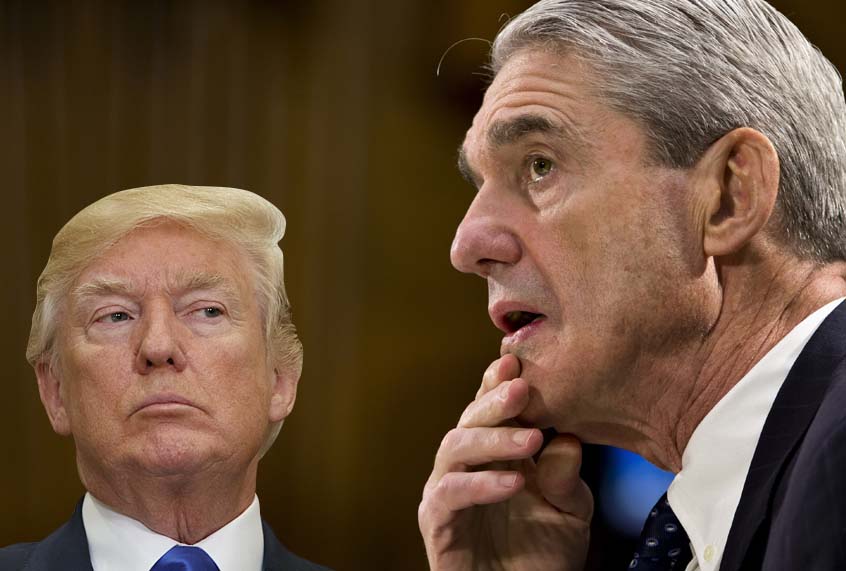Special counsel Robert Mueller’s has not been released in full to the public yet, and a lot of questions remain about it. But the topline conclusions — at least as told by Attorney General William Barr — are that Mueller is not charging anyone with a “conspiracy” with the Russian government, and that he did not make a determination either way about President Donald Trump’s culpability for obstruction of justice.
This is not an exoneration of Trump. But there is no doubt this is a disappointment to people who hoped for the highly improbable sight of Mueller leading Trump out of the White House in cuffs, or at the very least, that he would make a firm recommendation of impeachment. Trump certainly seems content to do a victory lap, and some members of the media content to let him have one.
But as Franklin Foer of The Atlantic writes, that does not mean any of this was in vain — and nor does it mean the president should be celebrating.
“Even if the actual Mueller report is anything like the attorney general’s summation of its contents, Russiagate will go down as one of the biggest scandals in American political history,” writes Foer. “The Mueller investigation has been an unmitigated success in exposing political corruption. In the case of Paul Manafort, the corruption was criminal. In the case of Trump, the corruption doesn’t seem to have transgressed any laws. As Michael Kinsley famously quipped, “The scandal isn’t what’s illegal; the scandal is what’s legal.” Lying to the electorate, adjusting foreign policy for the sake of personal lucre, and undermining an investigation seem to me pretty sound impeachable offenses — they might also happen to be technically legal.”
Moreover, as Foer notes, the investigation did uncover the answer to the main question it set out to learn: why did Trump go out of his way to suck up to and defend the Russians while running for president? The answer, detailed by the Manhattan prosecutors Mueller handed off the Michael Cohen investigation to, is that Trump wanted to build a tower in Moscow. He may not have aided and abetted the Russian counterintelligence war against the presidential election — Mueller could not produce sufficient evidence of this after two years of investigation. But it is increasingly clear Trump had financial interests in Russia, and used his campaign to signal to the Russians that they could make a deal with him.
“This is the very definition of corruption, and it provides the plot line that runs through the entirety of Trump’s political life,” Foer writes. “The president never chooses to distinguish— and indeed, may be temperamentally incapable of distinguishing — his personal interests from the national interest. Why has he failed so consistently to acknowledge Russian interference in the election? Because that interference was designed to benefit him. Why did he fire James Comey and, let’s use the word, obstruct the investigation into election interference? Because he wanted to protect himself from any investigation that might turn up material that reflected badly on him and his circle.”
As for the claims of some leftist pundits like Matt Taibbi that the national obsession with Russia was like Bush’s lies about weapons of mass destruction in Iraq? Well, yes and no, says Foer.
On the one hand, he writes, the Russia scandal differs from WMD in that the actual thrust of the suspicion was true: “The Russians were actively working to secure Trump’s victory. What makes their interference so horrifying is that it involved the theft of information and the active manipulation of public perceptions. All of that is arguably far worse than Watergate.” What is shakier is simply the issue of whether Trump himself colluded to pull this off, not whether Russian interference itself happened. But Foer argues Taibbi’s comparison has merit in one big way: “Just as Saddam Hussein acted as if he possessed verboten weaponry, everything about Trump’s behavior suggested that he was guilty of instances of collusion worse than anything the public could observe. That’s undoubtedly a major reason so many intelligence-community honchos were so worried.”
“That such a partnership [with Russia] never materialized is a relief,” concludes Foer. “But the fact that we’re not staring at the worst-case scenario of guilt is hardly a reason for giving the president any credit.”


